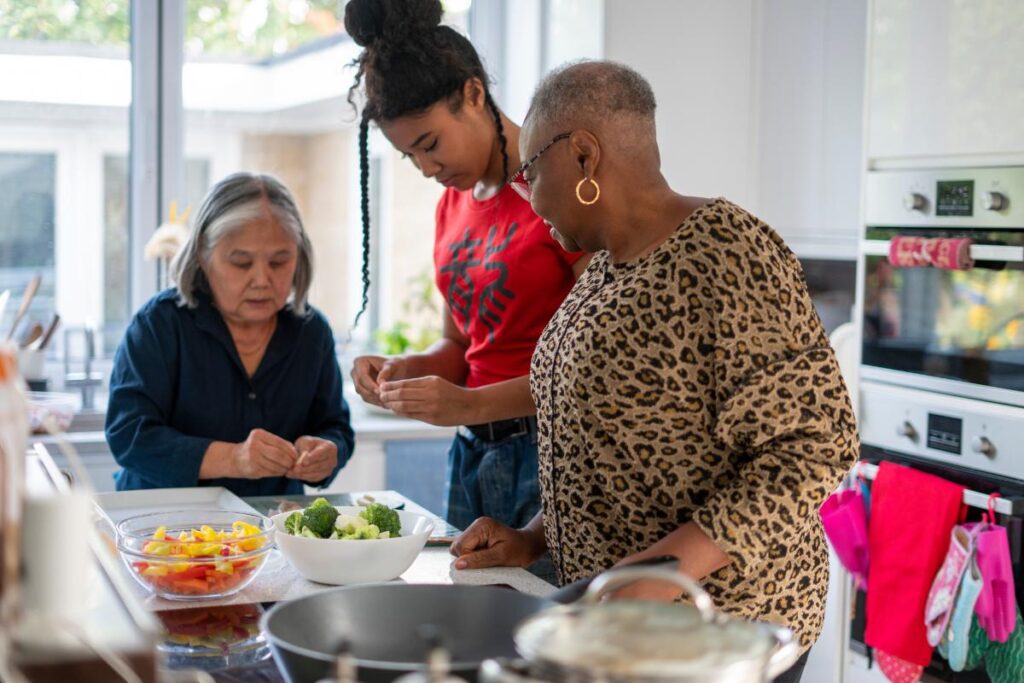Family dynamics are a massive influence on the life of any teenager. When they’re functional, these dynamics can have significant, positive effects on your child’s well-being. However, when they’re dysfunctional, they tend to have the opposite effect. These facts help explain why a family therapy program is crucial to teen mental health care. One of the most significant benefits of family activities for therapy is helping you improve your family’s communication habits. You can use various family therapy activities to support this critical goal.
The Importance of Healthy Family Relationships
Family relationships are pivotal to the lives of human beings. These relationships create the basic template that molds and shapes your everyday experiences. The same holds for your child. Healthy family relationships support well-being in several ways. They do so by increasing or supporting your teen’s:
- General mental and physical health
- Level of day-to-day happiness
- Self-esteem
- Positive outlook on the world and other people
How you communicate with your child is a vital factor in creating these beneficial effects. Supportive, open communication styles help form a loving home environment. However, a lack of open communication can easily contribute to family dysfunction.
The Impact of Dysfunctional Family Communication
Dysfunctional family dynamics are known for their potential to harm your child’s mental health. Quite often, poor communication styles contribute to this dysfunction. Common indicators of poor communication with your teen include:
- Constant reprimands or criticism
- Failure to treat your teen with respect
- Lack of praise or positive reinforcement
- Frequent shaming or blaming
Other, more passive communication issues are also common. Examples here include a need for more consistency. They also include a failure to provide guidance or set clear boundaries. In addition, they include a failure to engage with your teen or respond to them.
How Family Therapy Can Help
Family therapy is designed to help you deal with these issues. With support from a therapist, your family unit can better understand its current dynamics. This understanding helps reveal areas of strength. It also helps reveal areas where improvement is necessary to lessen dysfunction. Your therapist then shows you ways to make the indicated improvements.
Family therapy is known to help teens affected by various mental health issues. These issues include depression and anxiety disorders, which impact more people than any other condition. They also include eating disorders, conduct disorders, and co-occurring drug or alcohol problems.
Top Family Activities for Therapy
Various family therapy activities are designed to help you improve dysfunctional communication. Some of the top options include:
- Emotion guessing
- Listen and draw
- Communication origami
- The emotions ball
- Chinese whispers
Each of these family activities for therapy helps in its way. For example, emotion guessing helps you and your teen become more aware of your emotions. Listening and drawing help improve your ability to pay attention during conversations. Communication origami highlights the many ways in which conversations can go wrong. The emotions ball allows you to discuss specific emotions. Chinese whispers focus on improving your active listening and response skills.
Find Family Activities for Therapy in Colorado at Imagine Fort Collins
Want more information on family therapy activities for better communication? Talk to the experts at Imagine Fort Collins. We can explain how specific activities work. We can also help you explore their communication benefits, such as having healthy family relationships.
Family therapy is a frequent go-to option at Imagine Fort Collins. With its help, you can strengthen your relationship with your child. You can also address critical issues affecting your child’s mental well-being. Contact Imagine Fort Collins today at 888.291.2309 to learn more. You can also complete our brief online form.

